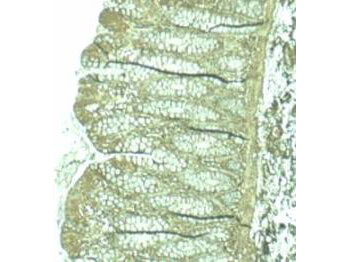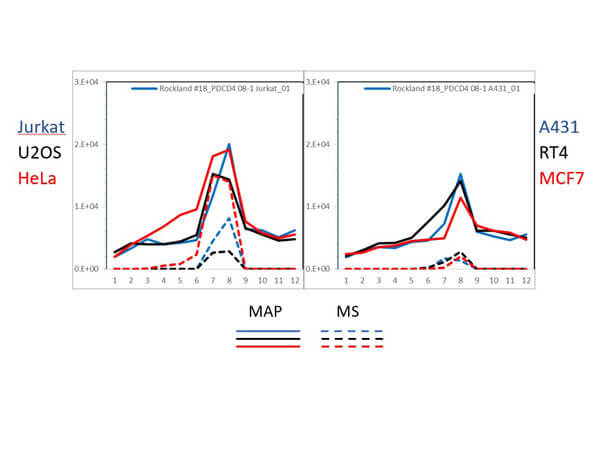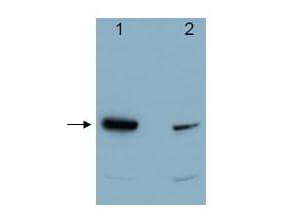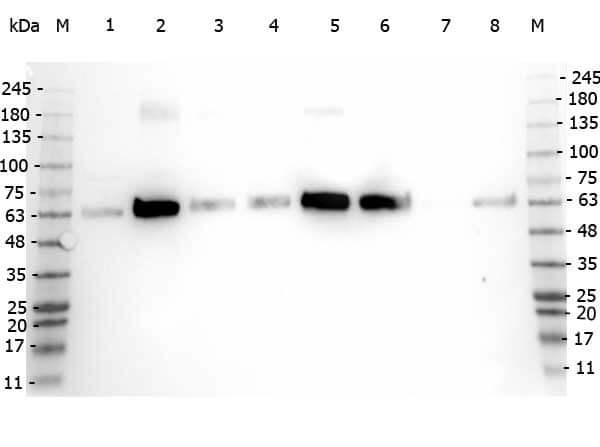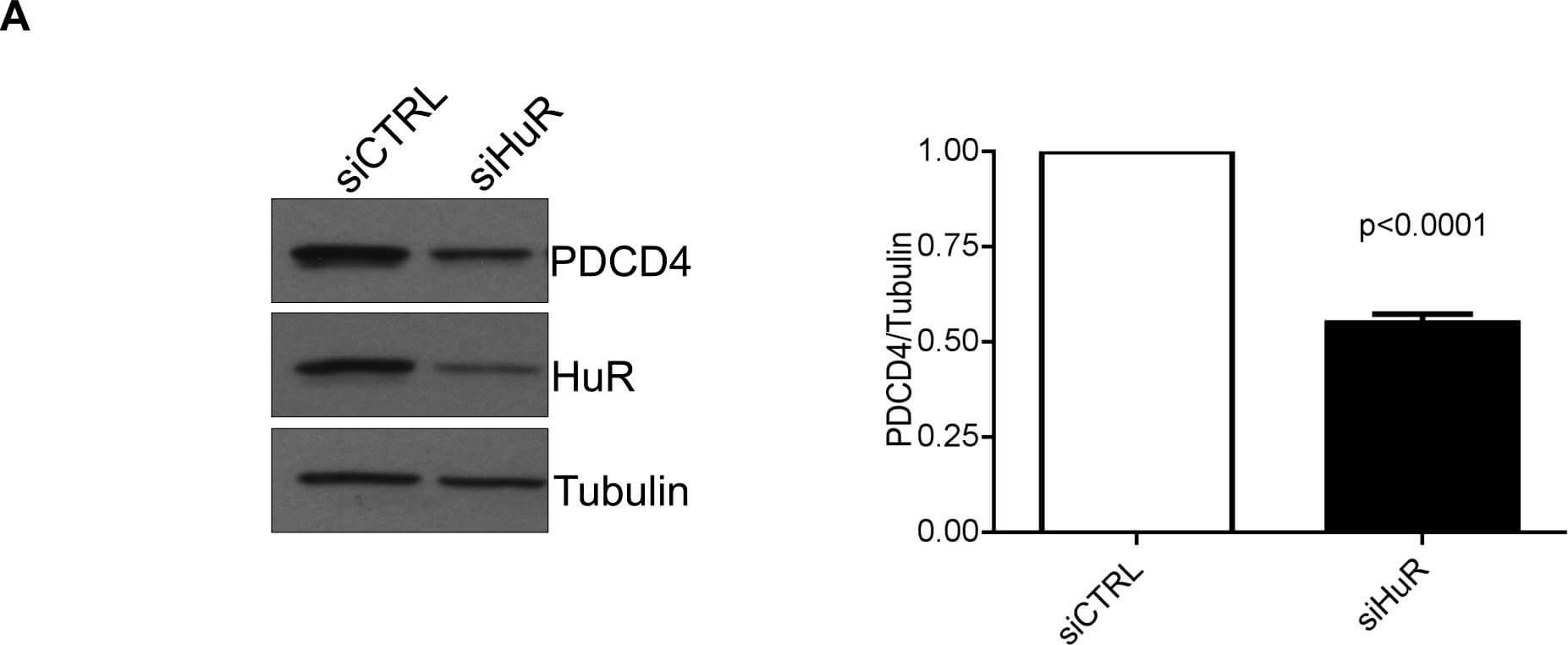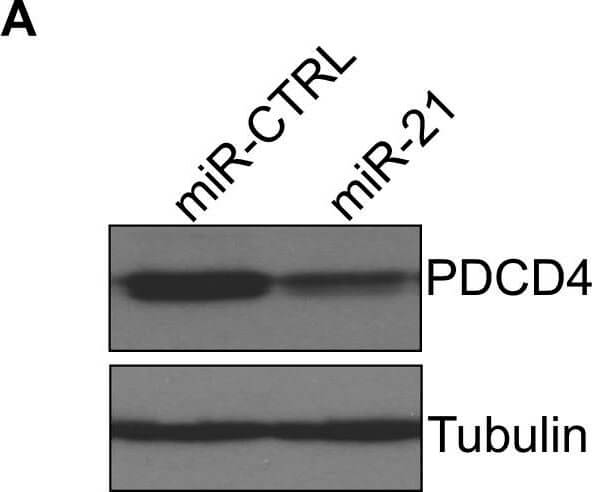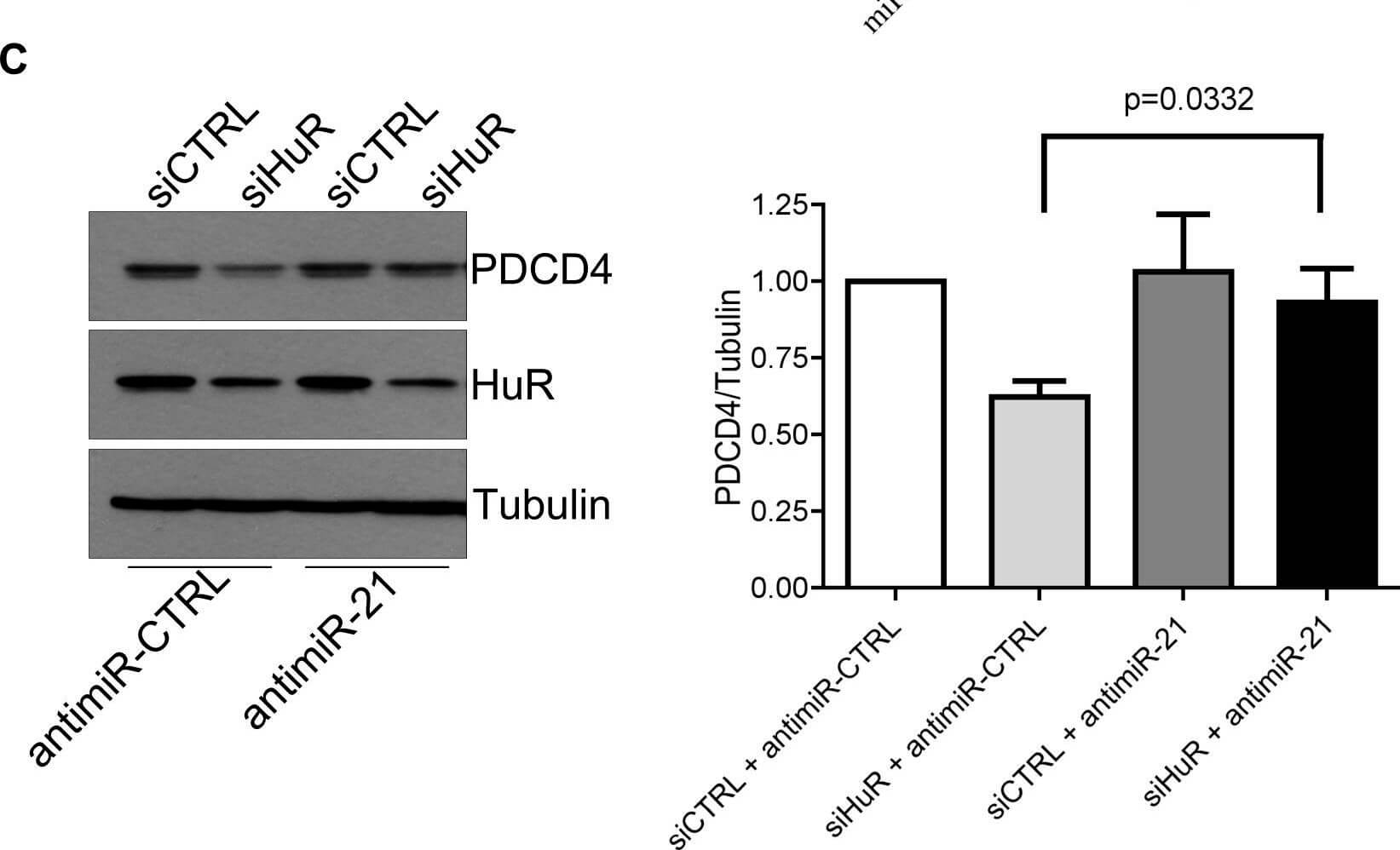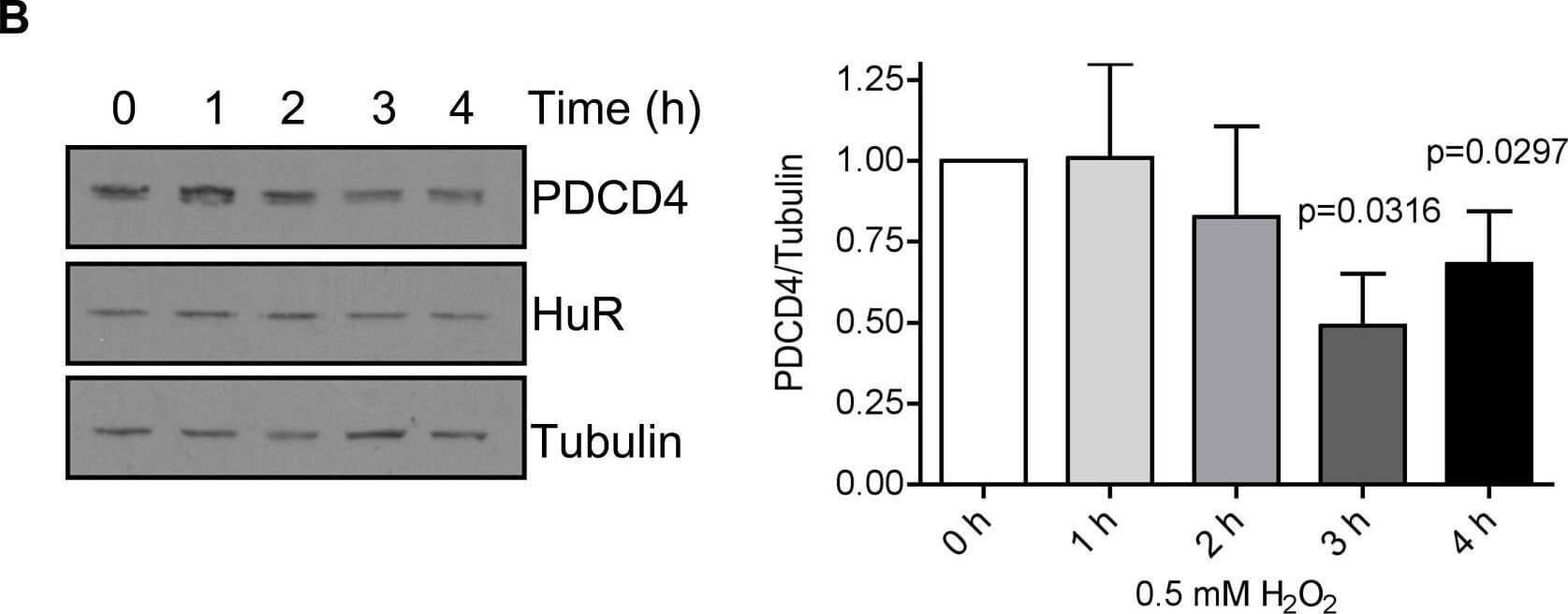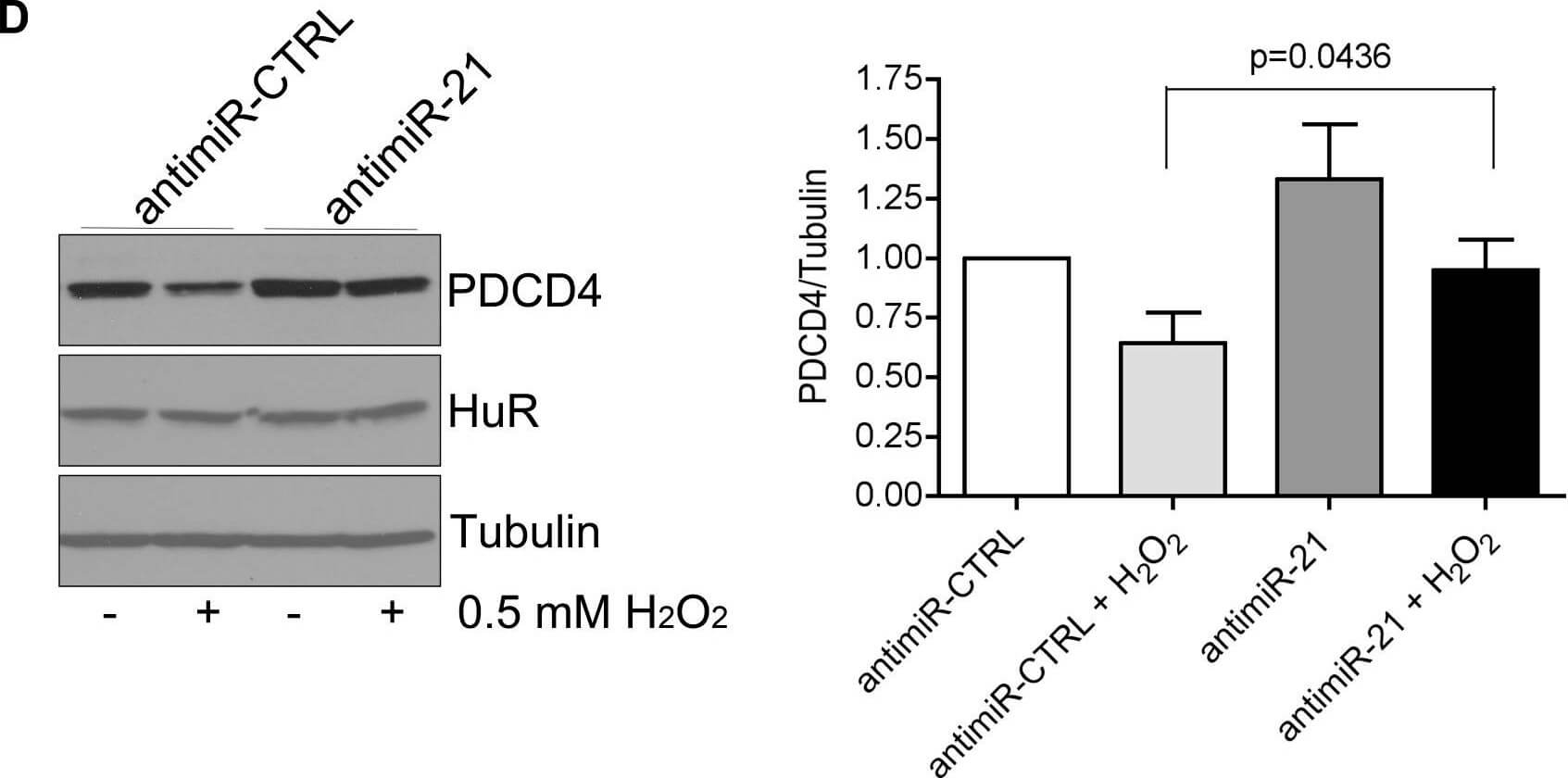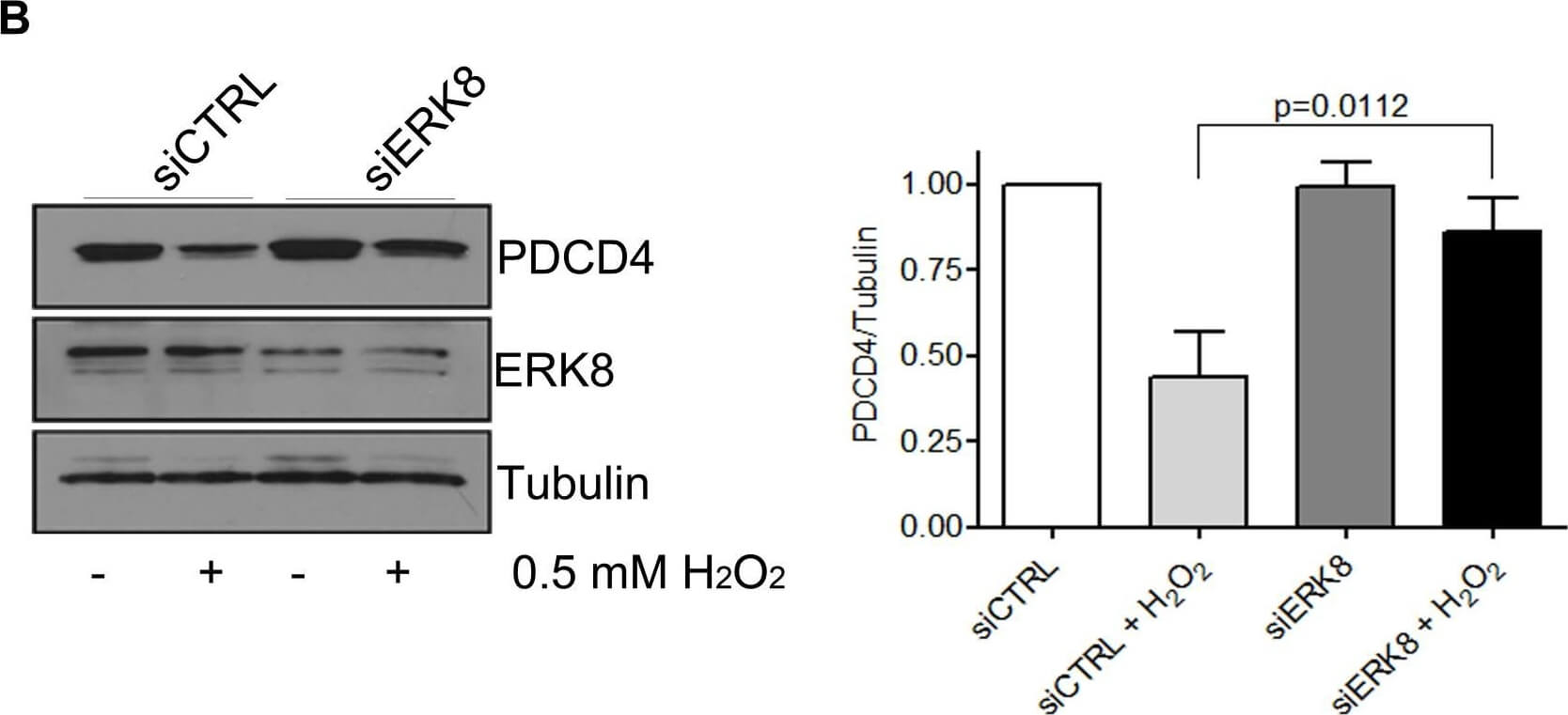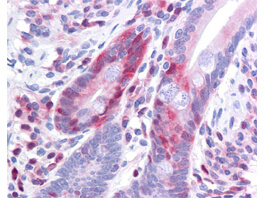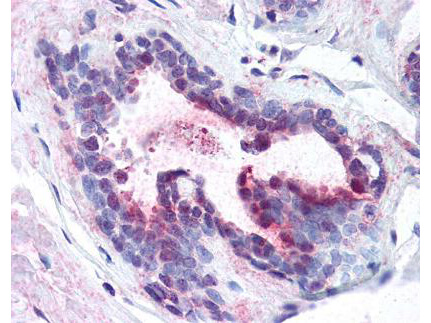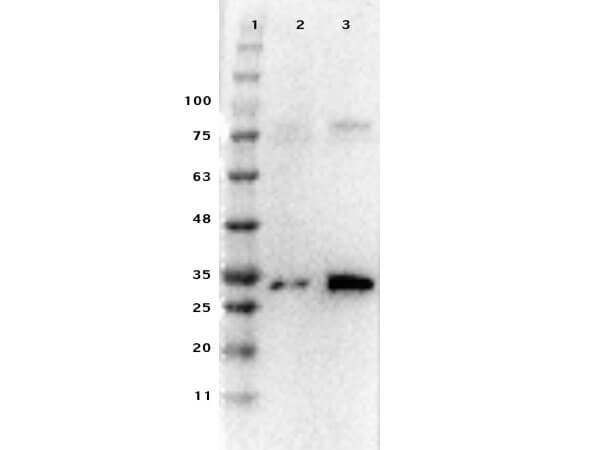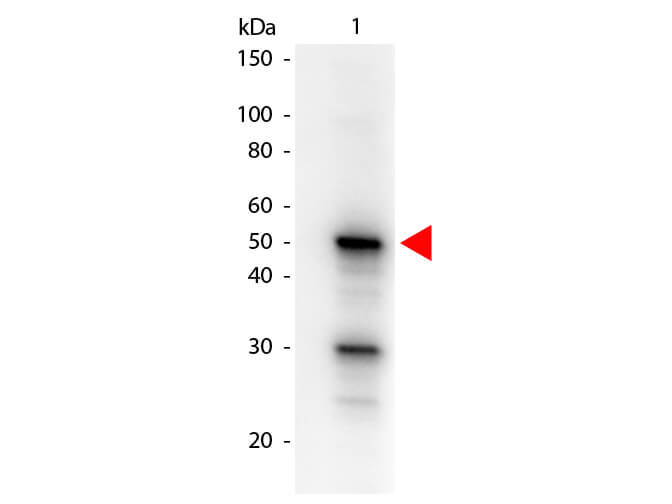Datasheet is currently unavailable. Try again or CONTACT US
Pdcd4 Antibody
Rabbit Polyclonal
13 References
600-401-965S
600-401-965
25 µL
100 µg
Liquid (sterile filtered)
Liquid (sterile filtered)
WB, ELISA, IHC, IP, Microarray, Other
Human, Mouse
Rabbit
Shipping info:
$50.00 to US & $70.00 to Canada for most products. Final costs are calculated at checkout.
Product Details
Anti-Pdcd4 (RABBIT) Antibody - 600-401-965
rabbit anti-PDCD4 antibody, PDCD-4, PDCD 4, Programmed cell death protein 4, Death up-regulated gene protein antibody, Dug antibody, H731 antibody, Ma3 antibody, Neoplastic transformation inhibitor antibody, Neoplastic transformation inhibitor protein antibody, Nuclear antigen H731 antibody, Protein 197/15a
Rabbit
Polyclonal
IgG
Target Details
PDCD4 - View All PDCD4 Products
Human, Mouse
Conjugated Peptide
This affinity purified antibody was prepared from whole rabbit serum produced by repeated immunizations with a synthetic peptide corresponding amino acids near the carboxyl terminus of human Pdcd4 protein.
This affinity purified antibody is directed against human Pdcd4 protein. The product was affinity purified from monospecific antiserum by immunoaffinity chromatography. A BLAST analysis was used to suggest cross-reactivity with Pdcd4 from human, mouse, rat and Xenopus based on 100% homology with the immunizing sequence. Cross-reactivity with Pdcd4 from other sources has not been determined. The antibody reacts with Pdcd4 protein that is either phosphorylated or non-phosphorylated at Ser457.
Application Details
ELISA, IHC, WB
IP, Microarray, Other
- View References
This affinity purified antibody has been tested for use in ELISA, western blotting, immunoprecipitation and immunohistochemistry. Specific conditions for reactivity should be optimized by the end user. Expect a band approximately 52 kDa in size corresponding to Pdcd4 protein by western blotting in the appropriate cell lysate or extract.
Formulation
1.0 mg/mL by UV absorbance at 280 nm
0.02 M Potassium Phosphate, 0.15 M Sodium Chloride, pH 7.2
0.01% (w/v) Sodium Azide
None
Shipping & Handling
Dry Ice
Store vial at -20° C prior to opening. Aliquot contents and freeze at -20° C or below for extended storage. Avoid cycles of freezing and thawing. Centrifuge product if not completely clear after standing at room temperature. This product is stable for several weeks at 4° C as an undiluted liquid. Dilute only prior to immediate use.
Expiration date is one (1) year from date of receipt.
This antibody is designed, produced, and validated as part of a collaboration between Rockland and the National Cancer Institute (NCI) and is suitable for Cancer, Immunology and Nuclear Signaling research. Programmed cell death 4 (Pdcd4) is a novel tumor suppressor. Pdcd4 directly inhibits the helicase activity of eukaryotic translation initiation factor 4A (eIF4A), a component of the translation initiation complex. Pdcd4 also suppresses the transactivation of activator protein-1 (AP-1)-responsive promoters by c-Jun. Pdcd4 contains two Akt phosphorylation sites, one at Ser67 and the other at Ser457. The phosphorylation of Pdcd4 by Akt causes nuclear translocation of Pdcd4 and a significant decrease in the ability of Pdcd4 to interfere with the transactivation of AP-1-responsive promoters by c-Jun.
Sikorski et al. (2018). A high-throughput pipeline for validation of antibodies. Nature Methods
Applications
PAGE-MAP, IP-MS
Kim et al. (2018). Activation of miR-21-Regulated Pathways in Immune Aging Selects against Signatures Characteristic of Memory T Cells. Cell Reports
Applications
WB, IB, PCA
Ng PKS et al. (2018). Systematic functional annotation of somatic mutations in cancer. Cancer Cell.
Applications
Microarray
Hill SM et al. (2017). Context specificity in causal signaling networks revealed by phosphoprotein profiling. Cell Syst.
Applications
Other
Liwak-Muir et al. (2016). ERK8 is a novel HuR kinase that regulates tumour suppressor PDCD4 through a miR-21 dependent mechanism. Oncotarget
Applications
WB, IB, PCA
Kudinov A et al. (2016). Msi2 Regulates the Aggressiveness of Non Small Cell Lung Cancer (NSCLC). Proc Natl Acad Sci USA.
Applications
Other
Sharma SB et al. (2014). MicroRNAs 206 and 21 Cooperate To Promote RAS–Extracellular Signal-Regulated Kinase Signaling by Suppressing the Translation of RASA1 and SPRED1. Mol Cell Biol.
Applications
WB, IB, PCA
Yang, CH et al. (2014). The curcumin analog EF24 targets NF-κB and miRNA-21, and has potent anticancer activity in vitro and in vivo. PloS One
Applications
WB, IB, PCA; Statistical Analysis
Shen, F et al. (2014). MicroRNA-21 Down-regulates Rb1 Expression by Targeting PDCD4 in Retinoblastoma. Journal of Cancer
Applications
WB, IB, PCA
Hirata K et al. (2013). CD44 variant 9 expression in primary early gastric cancer as a predictive marker for recurrence. Br J Cancer
Applications
IHC, ICC, Histology
Ruan Q et al. (2011). The microRNA-21− PDCD4 axis prevents type 1 diabetes by blocking pancreatic β cell death. Proc Natl Acad Sci USA.
Applications
WB, IB, PCA
Sheedy FJ et al. (2010). Negative regulation of TLR4 via targeting of the proinflammatory tumor suppressor PDCD4 by the microRNA miR-21. Nat Immunol.
Applications
IP, Co-IP
Wei, N A. et al. (2009). Loss of Programmed cell death 4 (Pdcd4) associates with the progression of ovarian cancer. Molecular Cancer
Applications
WB, IB, PCA; IHC, ICC, Histology
This product is for research use only and is not intended for therapeutic or diagnostic applications. Please contact a technical service representative for more information. All products of animal origin manufactured by Rockland Immunochemicals are derived from starting materials of North American origin. Collection was performed in United States Department of Agriculture (USDA) inspected facilities and all materials have been inspected and certified to be free of disease and suitable for exportation. All properties listed are typical characteristics and are not specifications. All suggestions and data are offered in good faith but without guarantee as conditions and methods of use of our products are beyond our control. All claims must be made within 30 days following the date of delivery. The prospective user must determine the suitability of our materials before adopting them on a commercial scale. Suggested uses of our products are not recommendations to use our products in violation of any patent or as a license under any patent of Rockland Immunochemicals, Inc. If you require a commercial license to use this material and do not have one, then return this material, unopened to: Rockland Inc., P.O. BOX 5199, Limerick, Pennsylvania, USA.

